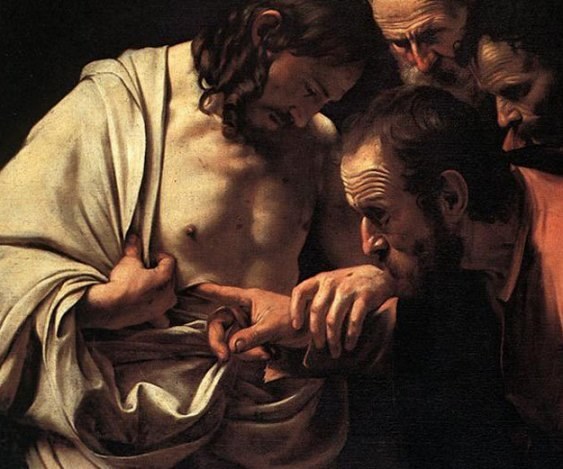Thomas is my favorite apostle. I love his inquisitive nature (John 14:5) and his demand for evidence (20:24-29). Thomas may have even been the boldest apostle! When Jesus announced to his disciples that he was going to Judea, they tried to stop him (11:8). And yet Thomas was not dissuaded. He boldly proclaimed: “Let us also go, that we may die with him” (11:16). Thomas may have even first evangelized India and died there as a martyr.
Thomas was not a doubter
And yet most people simply remember Thomas as a doubter. How unfortunate! The great irony is that Thomas wasn’t even a doubter. That’s right, Thomas was not a doubter. Let me say it one more time to be sure it sinks in—“Doubting Thomas” was not a doubter.
How can I make such a claim? According to Strong’s Greek lexicon doubt (distásō) means, “to waver, hesitate, be uncertain.” Doubt is not rejection of belief, but holding a belief with hesitation and uncertainty. Doubt involves believing something with questions about whether it is really true or not. In fact, doubt seems to be parasitic upon belief.
When we think about it this way, its clear that Thomas was not a doubter. He didn’t doubt the resurrection of Jesus—he fully rejected it until he could have physical proof. John 20:24 describes an appearance of Jesus to the apostles except Thomas:
Now Thomas, one of the Twelve, called the Twin, was not with them when Jesus came. So the other disciples told him, “We have seen the Lord.” But he said to them, “Unless I see in his hands the mark of the nails, and place my finger into the mark of the nails, and place my hand into his side, I will never believe.”
As this passage clearly indicates, Thomas refused to believe. He didn’t doubt the resurrection; he rejected it entirely and claimed he would never believe without physically touching the risen Jesus. The adjective “doubting” misrepresents Thomas’ unbelief. Maybe we should call him “Skeptical Thomas” or “Incredulous Thomas.” Probably the most accurate title would be “Disbelieving Thomas.” But, of course, that doesn’t have the same flair as “Doubting Thomas.” Regardless, Thomas was not a doubter and we need to stop referring to him as one!
Two reasons this matters:
1. Calling Thomas a doubter implies that doubt is opposed to faith. In reality, there are many people who believe amidst doubts—myself included! Right before Jesus gave the Great Commission, and then ascended to the Father, Matthew reports that the eleven disciples worshipped Jesus, but some doubted (Matthew 28:16). They did believe that Jesus had risen from the grave, but they still harbored doubts. If the apostles of Jesus had doubts, even though they saw Jesus in his resurrected state, then it seems natural that many of us will too. Given that Thomas seems firm is his belief (and unbelief), my suspicion is that Thomas was not one of the apostles who Matthew reports as doubting. So, ironically, there may even be other apostles who were greater doubters than Thomas.
2. Calling Thomas a doubter implies that certainty is required for belief. If we refer to Thomas as a doubter when he was not a believer, then aren’t we implying that people with doubts don’t genuinely believe either? When people think belief requires certainty, doubts and questions can be paralyzing, painful, and sometimes even lead to despair. Fortunately, the Bible does not teach that certainty is required for faith (nor does good epistemology). According to the Stanford Encyclopedia of Philosophy, belief is when “we take something to be the case or regard it as true.” Understood this way, belief does not require certainty. In fact, depending on the available evidence, we hold beliefs with varying degrees of confidence. For instance, the belief that my wife loves me is much firmer than my belief that the San Antonio Spurs will win the NBA championship next year. I am much more confident in the former, but I do believe both are true.
Jude 22 says, “And have mercy on those who doubt.” This implies that doubt is not the opposite of faith (point #1) and also that certainty is not required for belief (point #2). And it also shows the posture with which we ought to approach people with doubts. Rather than improperly labeling them, we ought to extend care and grace for people with questions. No doubt about it.
If you are having doubts about your faith, or know someone who is, check out my latest book: Set Adrift: Deconstructing What You Believe Without Sinking Your Faith.


